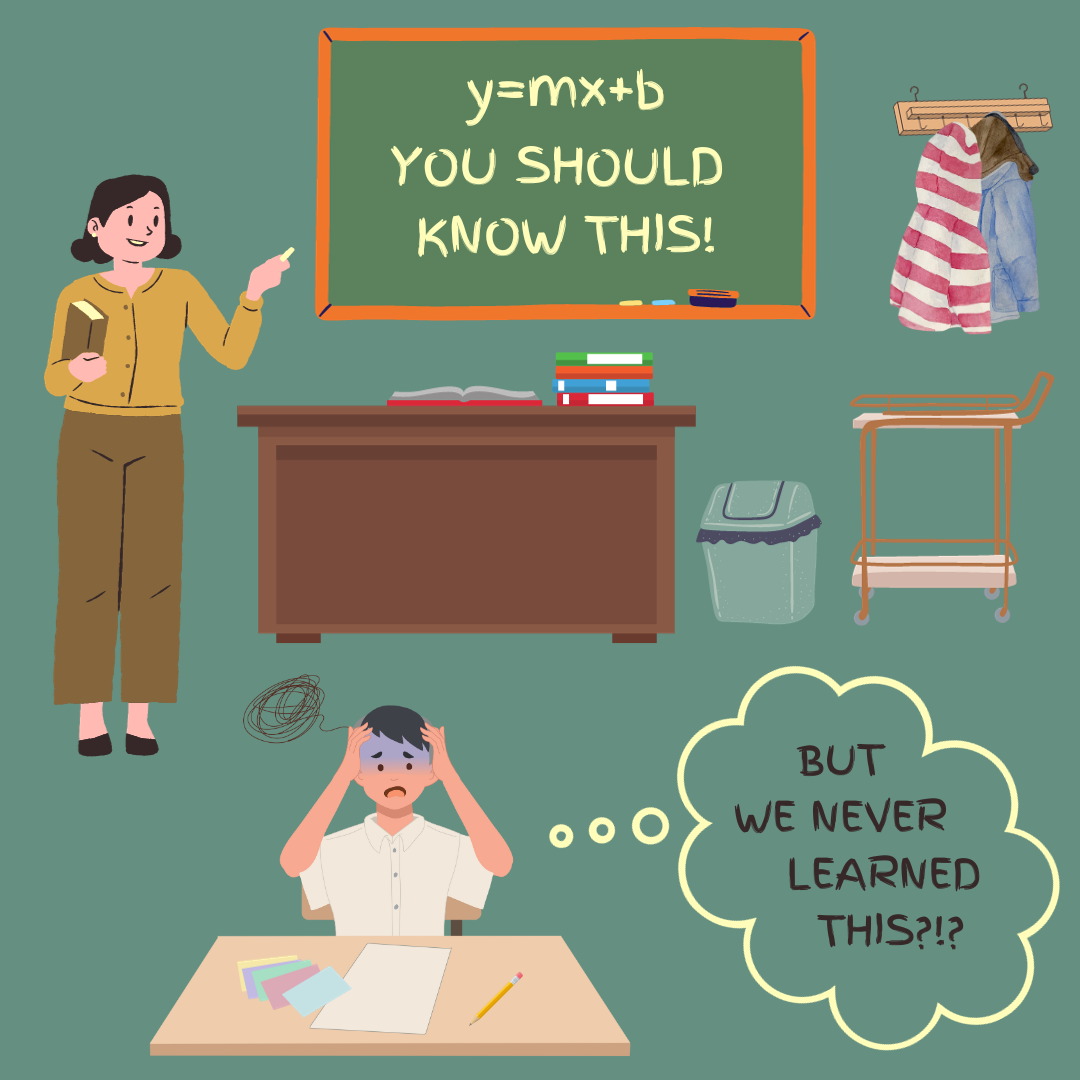The reality of modern day high school is not the cinematic community the media portrays. The students are not twenty-something-year-old actors speaking in outdated lingo, and food fights are not a common occurrence, although there are plenty of culinary mishaps each day. The manner in which instructors teach is not depicted accurately through popular movies and television shows; in fact, the truth about teachers today may be even worse than it is on the big screen.
Sometimes, 21st century teachers don’t teach. Of course, not every advisor or instructor is lacking in their ability to convey ideas or information, but as a student, it feels as though every year I am placed in a class where the teacher does not seem to be doing their job.
Why is this the case?
Many attribute teachers’ lack of motivation or unwillingness to create content and lessons that engage students to the COVID-19 pandemic. During these few years, online learning was common. The world was given no choice but to turn to artificial intelligence and digital courses for guidance. However, the transition back into in-person instruction was rocky. It was clear that students lacked patience, work-ethic, and the ability to focus after the long hiatus from learning in a classroom. Watching their lesson criss-cross-applesauce on their bed with a movie on in the background had become the norm, and the negative aftermath was apparent in plummeting grades and behavior.
Many may not want to admit this, but teachers faced similar challenges. I know that my own mother, a previous teacher, still struggles with having to attend business trips and dress in professional attire. She mourns the months where she could wear pajama pants on Zoom calls and cook herself lunch from home each day.
But alas, the “normal” routine of reality has returned, and with it, the normal responsibilities. For teachers, that means teaching, engaging, and putting in the extra work to guide their students towards success. It is the unfortunate truth that a heavy handful have not lived up to these expectations.
As a student, you can complain all you want about how your instructor is failing you, but that does not mean that life in their class will improve. You have to take initiative to change the way things are done.
Have a Face-to-Face Conversation
One of the most effective ways to address a teacher about such concerns is to speak directly with them during PowerHour or before school. These allotted periods of freedom are meant for this exact type of conversation. Initiating or confronting the instructor with the problems you may be having in their class or with the way they teach is a daunting thought. Trust me, I know. However, this act of bravery will shed light on your perspective and may help both parties better understand how to adapt.
Seek Study Tips Elsewhere
If this tactic sounds scary and unrealistic, I encourage you to utilize outside resources to educate yourself on the content you are missing out on in class. Choosing to learn in a way that is effective to you requires immense self-motivation, but it is often the top-notch method of absorbing information. Why do you think some of the highest-achieving students study so much in their free time?
Find Success in Synergy
If perhaps you lack the focus and motivation to take time outside the classroom for coursework alone, think about organizing group discussions or sessions with your peers to try and work together. Tackling fresh and unfamiliar topics with friends can make it so much more fun, and creating humorous ways to remember terms and concepts can leave you feeling recharged rather than drained. Students in the same class or who have the same deficient teacher can offer their own perspectives on how to move forward. Maybe they understand aspects that you do not? Maybe you all can compare notes, piece together the puzzle pieces of the lesson, and problem solved! Maybe all it takes is a little teamwork. Banning together and working in masses to achieve a common goal increases your chances of success, it’s that simple.
Conference with a Counselor
If all else fails, there lies the advice of your designated class counselor. Counselors and advisors are not only here to complete schedule changes, but also to hear your concerns and offer a course of action. They may be able to speak with the problematic teacher directly, or even switch you into the same course with a different instructor. Moreover, if the particular class you are struggling with is not required to graduate, switching into a completely new subject altogether is something worth talking about. An abstract branch of study may offer teachers that are more your style, but you won’t know unless you follow up with your counselor.
Be Bold but Respectful
For any situation where a teaching approach or personality is not effective in your education, having the courage to speak up and voice your concern is the best way to address the problem. An answer or solution will not be achieved without first realizing, accepting, and communicating it with those involved.
Remember that you will not be in the classroom all your life; to be in school is a privilege and opportunity to take advantage of, not to let pass by without care. Take the initiative and search for a way to succeed in whatever goals you desire. I can promise you that you won’t regret the effort.
On a final note, if you need to speak with the teacher, set up a time, be professional and respectful, and go in as someone striving to solve a problem. Using inclusive language is important; willingness to have patience is vital. The anger and frustration over the fact that your teachers are “failing” can often roar to the surface, but please, remember that no one is perfect. Those up at the Smart board writing lessons and grading essays are people just like you, so have courtesy.
Take some deep breaths, act rationally, use logic, and try out a few of these tactics the next time you find that your teacher is falling short of your expectations.








